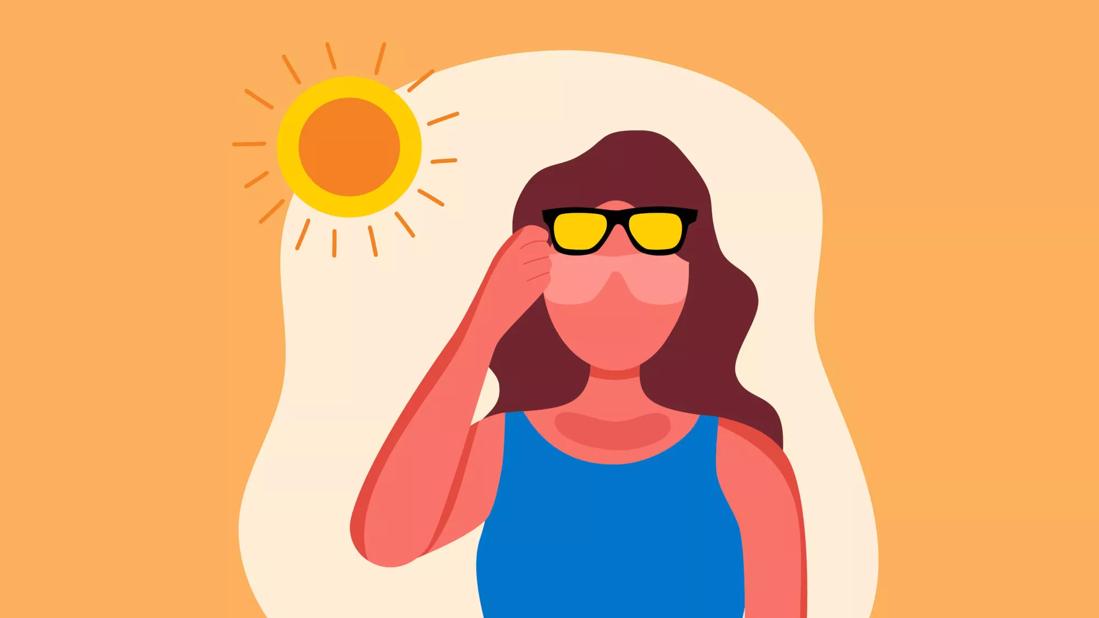A sunburn will leave you itchy and red, while sun poisoning can feel like an allergic reaction

Image content: This image is available to view online.
View image online (https://assets.clevelandclinic.org/transform/ed6f3f6e-eb11-4325-9326-428120620f4e/Sun-Poisoning-Sun-Burn-1404782970-770x533-1-scaled_jpg)
person in the sun, with sun burn
A sunny day is usually an invitation to get some fresh air, enjoy the beach and, of course, enjoy the sunshine. But many of us have had those times when the sun hits us a little too hard and we wonder: Is this just another sunburn or could it be sun poisoning?
Advertisement
Cleveland Clinic is a non-profit academic medical center. Advertising on our site helps support our mission. We do not endorse non-Cleveland Clinic products or services. Policy
While both are often partners in crime during the hot summer months, there are differences between sunburns and sun poisoning.
Dermatologist Taylor Bullock, MD, explains that difference — and how to find relief from both.
Sun poisoning is essentially a severe, harmful sunburn. It lasts longer than a typical sunburn and the symptoms are more severe. Sunburns typically go away after a few days, but a case of sun poisoning lingers for longer and can manifest through hives, blisters and even nausea.
This is why you may have heard people describe sun poisoning as more of an allergic reaction or “sickness” rather than just a burn. “While both a sunburn and sun poisoning can cause your skin to become red, painful and swollen, sun poisoning will give you additional symptoms that go deeper than the skin,” explains Dr. Bullock.
If you’re experiencing the following symptoms (and they subside after a couple of days), you may have a sunburn:
As Dr. Bullock noted, sun poisoning symptoms are more severe. “The beginning of sun poisoning can look similar to a sunburn but will have increased redness and irritation,” he continues. “Soon after, many small or large blisters will occur on the skin due to inflammation in the skin. Once the blisters on the skin have ruptured, the skin will start to peel.”
Advertisement
The following symptoms are common signs of sun poisoning:
As a sunburn can go hand-in-hand with sun poisoning, some of the treatments can be similar. Depending on severity, you can treat your sunburn and a mild case of sun poisoning at home.
To find relief from both a sunburn and sun poisoning:
In severe cases, sun poisoning may need additional medical attention and specific treatments, including:
Although sun poisoning can be treated and relieved at home, there are some cases where you should go to the emergency room. Once admitted, you may need to receive intravenous (IV) fluids or be treated at the burn unit.
In general, if you’re still feeling extreme, burning pain, as well as widespread blistering on your skin despite at-home treatments, you should seek medical attention.
In severe cases of sun poisoning, you may also start showing signs of heat stroke. If you experience any of the accompanying symptoms, you should go to the emergency room or see your healthcare provider:
To prevent sunburns and sun poisoning, protect your skin from the sun’s rays.
Ensure that each time you head outside, you:
Advertisement
The discomforts of sunburn — like redness and itchiness — can be an inconvenience, but they’ll heal with time and over-the-counter treatments. More severe symptoms of sun poisoning — such as nausea, dizziness and blistering — may require a visit to a healthcare provider. Either way, precaution is the best prevention.
Advertisement

Sign up for our Health Essentials emails for expert guidance on nutrition, fitness, sleep, skin care and more.
Learn more about our editorial process.
Advertisement
Leaving a severe sunburn untreated can lead to dehydration and heat-related illness
Resist the urge to peel, and treat your healing skin to some much-needed hydration
Soothe your red, burning skin by applying aloe vera, moisturizing and using a cold compress
The safest route for now is to avoid spray-style sunscreen, and opt for lotion-based ones instead
This cooling gel can help soothe sunburned skin, but it can’t cure the burn
A dermatologist explains this agonizing type of sunburn
The simple, straightforward and hard-lined answer is no
The combo of lime and sunshine can cause blisters
Type 2 diabetes isn’t inevitable with these dietary changes
Applying a hot or cold compress can help with pain
Pump up your iron intake with foods like tuna, tofu and turkey